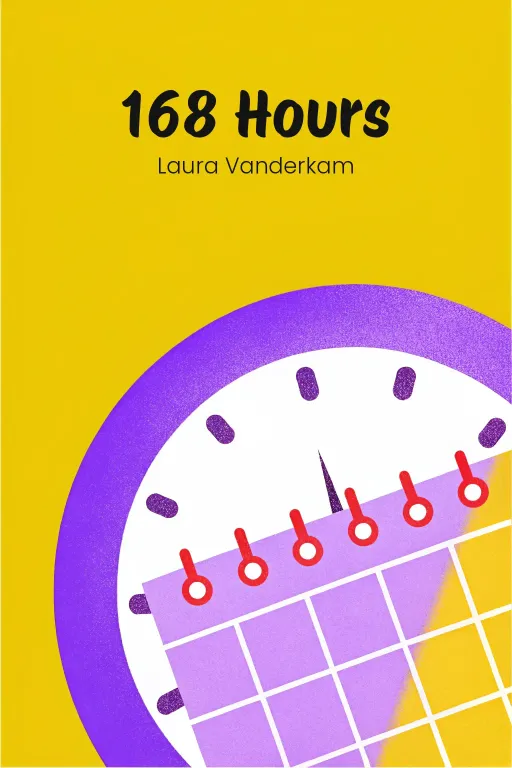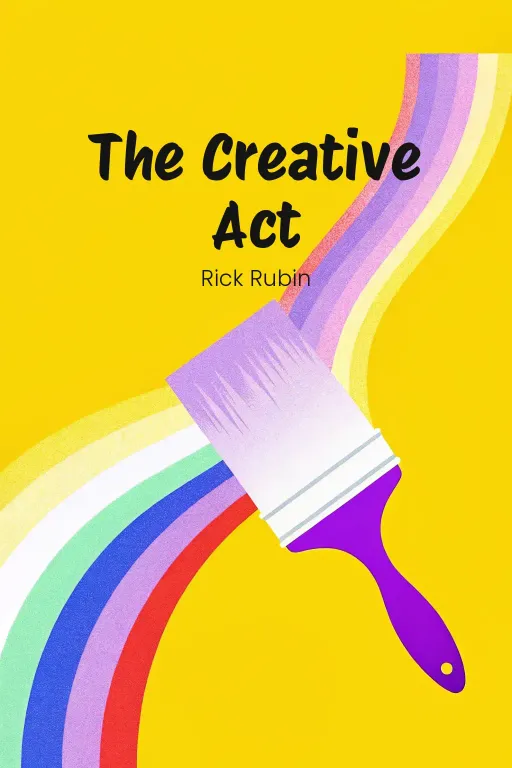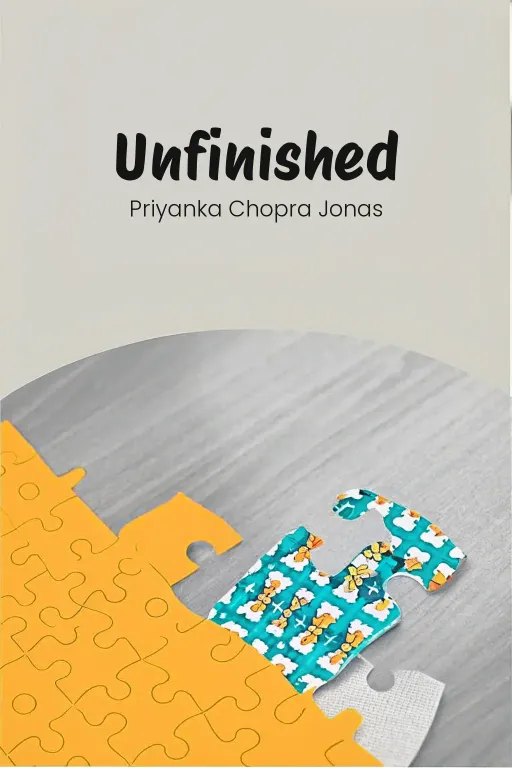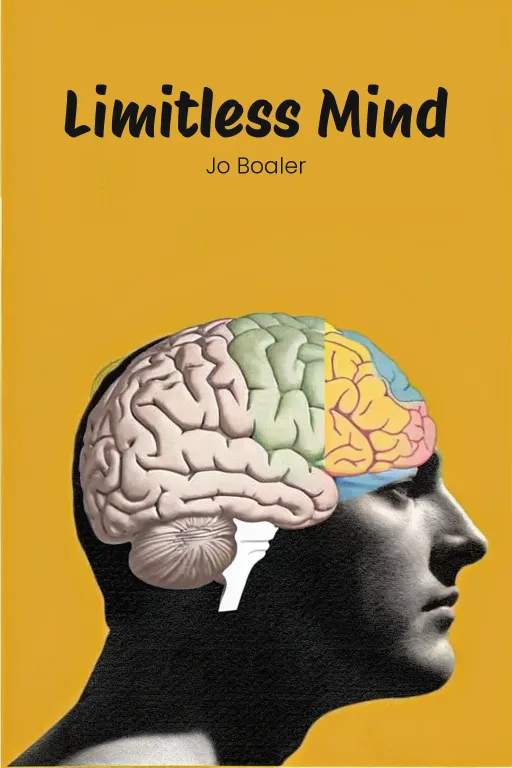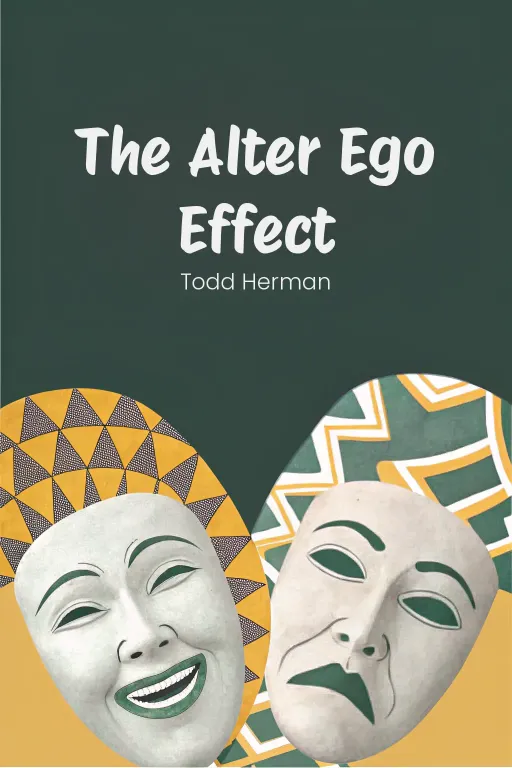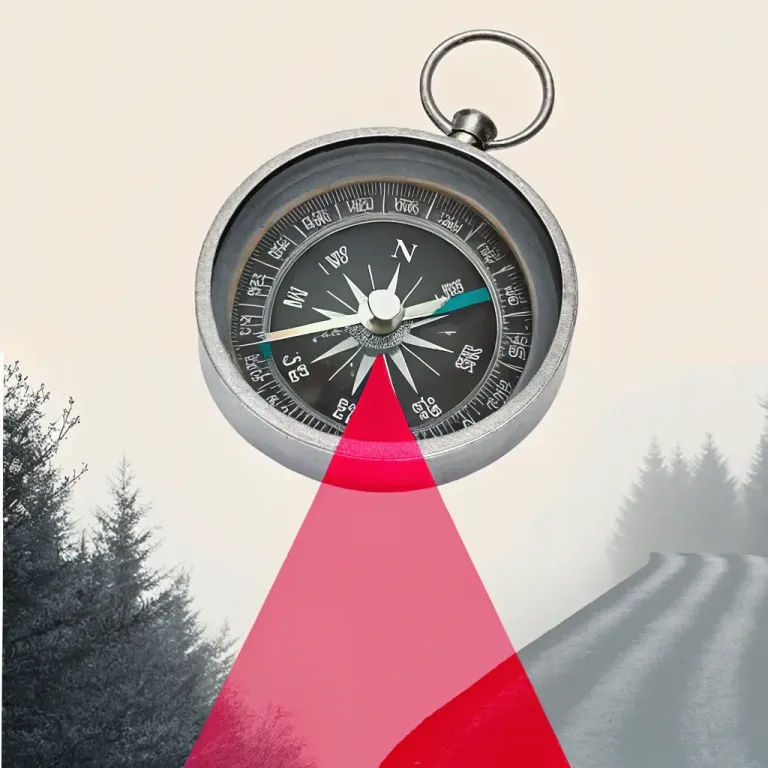
Find Your Spark: Reclaim True Passion
Podcast by Beta You with Alex and Michelle
25 Questions You Must Ask Yourself
Find Your Spark: Reclaim True Passion
Part 1
Alex: Hey everyone, welcome to the show! Today, we're tackling something I think we can all relate to: feeling a bit lost, uninspired, or just wondering if we're really on the right path. Michelle: Yeah, it’s that feeling of, "Okay, I'm here...but what's next?" It's like having all the ingredients but no recipe, right? Alex: Exactly! And the book we’re discussing is basically a compass to help you find that recipe. It’s about shedding those layers of "shoulds," getting back in touch with who you really are, and taking baby steps toward a life that feels truly…you. Michelle: Okay, sounds promising. But is this another one of those "manifest your dream life" kind of things? Because, you know, sometimes reality has other plans. Alex: Not at all. The author actually starts by redefining what passion even is. It’s not about chasing fancy titles or what the world tells you is successful. It’s about finding what genuinely excites you and gives you energy in the “doing”. Michelle: Okay, you have my attention. So what’s our plan of attack for today? Alex: We’re breaking it down into three parts. First, we're going to rethink what passion means and why those traditional definitions of "success" often fall short. Then, we'll face those fears and limiting beliefs head-on—those mental roadblocks that keep us stuck. And finally, we’ll talk about how small, deliberate actions can actually cultivate passion in your daily life. Michelle: I like that emphasis on the small stuff. So, it's less about a dramatic makeover and more about…gardening? Alex: Yes! You've got to understand your soil—your passions and strengths—weed out the doubts and fears, then nurture it bit by bit so it flourishes. Michelle: Alright, I’m ready to roll up my sleeves and get our hands dirty. Let’s get to it!
Understanding and Defining Passion
Part 2
Alex: Okay, let’s dive right in. The core idea is understanding and maybe even “redefining” what passion really is. The book argues that a lot of us fall into this "definition trap," where we think passion has to be linked to something huge—a dream job, some massive achievement. But actually, true passion is often much quieter. It’s those moments where you feel a real sense of connection between who you are and what you're doing. Michelle: So, we're not necessarily talking about becoming the next Elon Musk or some viral sensation? Good to know! But seriously, this "definition trap" is a tough one to avoid, isn't it? Society just loves a simple success story. It’s like, if your passion doesn’t lead to fame or a ton of money, it’s somehow less valid. Where do we even start to untangle that kind of thinking? Alex: That's the million-dollar question. The book suggests that it begins with some serious self-reflection. Asking yourself things like, "What truly gives me energy? What activities make me feel fulfilled?" And maybe most importantly, "Is this idea of passion coming from me, or is it based on expectations from my family, my culture, or even just what I see on social media?" Michelle: Exactly, because those external voices are so loud! I mean, imagine someone who’s always been told they're amazing at math. Everyone pushes them towards engineering or finance because it seems practical and "safe." But then, years later, they're completely miserable – not because they're bad at their job, but because it was never their choice in the first place. Alex: Right. The book even brings up a similar example. It's not that being an engineer is inherently bad; it's about whether it aligns with your own values and brings you joy. That person might have really wanted to be an artist or a furniture designer. When your passion is judged by others instead of how it feels to you, you often end up feeling disconnected. Michelle: Wow, that's a bit of a wake-up call. So, how do we actually start to break down those layers of external expectations? I'm guessing the author doesn't just say, "Quit your job, sell everything, and go live off the grid"? Alex: No, not at all! It’s all about introspection, and the book gives you some very practical exercises to help guide you. One is called Reflective Inquiry. You start by asking yourself, "How do I currently define passion?" And then dig deeper. Have you adopted a definition because of what society tells you, or is it something that truly resonates with you? Michelle: Okay, let me throw a hypothetical your way. Let’s say someone journals, reflects, does all the work, and realizes that their real passion is, I don’t know, mentoring young people – but their current job has absolutely nothing to do with that. Do they just quit and completely start over? Alex: Not necessarily. Even if their current job doesn’t have direct opportunities for mentoring, they could find ways to incorporate it into their life. Maybe they start mentoring colleagues informally, or they volunteer as a coach outside of work. The point is that passions don't always require huge, dramatic changes; they can be woven into the life you're already living. Michelle: Okay, I get that. It’s less about making a hard U-turn and more about making subtle adjustments to stay on course. Another exercise from the book that caught my attention was Examining Expectations. You write about important career or life decisions you’ve made, and then honestly evaluate whether those decisions brought you joy, or just applause from other people. Alex: Exactly! And here’s the real kicker: If absolutely no one were watching, would you still want to pursue those same things? It’s such a simple question, but it can be so powerful. Michelle: Ouch, that hits hard. That "if no one were watching" test definitely strips away a lot of the BS, doesn’t it? I’m guessing this is also where you start to uncover all the emotional baggage tied to passion – fear of failure, fear of not being good enough, fear of judgment. Alex: Absolutely. And to help you break free from those societal definitions, the book suggests a bit of imaginative play: Dream Without Constraints. You basically ask yourself, "What would I do if the concept of failure simply didn't exist?" Michelle: I love that idea! Like having a blank check for your dreams, right? Let's dig into that exercise a bit more. What if someone discovers that their no-constraints dream sounds kind of, well, silly to other people? Like, what if they’d really love to travel the world and map out all the best ice cream shops? Alex: The key is to embrace it without judging yourself. It's not about external validation or how "worthy" the dream seems to others; it's about exploring the deeper reason behind it. Maybe it's not just about the ice cream itself. Maybe it's about a love of adventure, a curiosity about the world, or even just a desire for simple sensory pleasures. Once you understand the underlying drivers, you can find plenty of ways to reflect those values in your life. Michelle: So it’s not really about the ice cream, it’s about the “flavor” it adds to your life, so to speak. That makes sense. And I really like that the author shares his own story to illustrate this point, right? He went from being a professional poker player – a flashy, risky, but very lucrative career – to doing something completely different, helping other people connect with their own passions. That kind of reinvention isn't easy. Alex: Definitely not. But his story is a powerful example of what can happen when you reach a point where societal success just isn't enough and you realize you need something more meaningful. What really drove him wasn’t the thrill of poker, but this need for self-expression and connection, which poker simply couldn't provide. And that realization gave him the clarity to completely reimagine his life. Michelle: It’s a lesson that really resonates: Money and external validation won’t fill that void if you’re not living in alignment with your true self. And there’s actually science to back this up, isn’t there? The book mentions research that shows that once your basic financial needs are met, happiness comes from things like creativity, community, and engaging in activities that align with your personal values – not from bigger titles or fatter paychecks. Alex: Exactly! It’s validating, isn’t it? Passion isn't about chasing some distant goal; it’s about finding joy in the present moment. Like the book says, even those "small joys," like cooking or playing an instrument, can be just as significant as chasing those big, shiny goals. Passion happens in the everyday moments that we often overlook. Michelle: So passion's not just some single "X" on a treasure map; it’s the entire journey, those small steps, those course corrections, all of it.
Overcoming Obstacles to Passion
Part 3
Alex: So, with those fundamental concepts laid out, we can really dig into how to bring our lives “into” alignment with these passions. Now, that’s often where things get tricky, right? It sounds good in theory, but there are always hurdles. Fears, doubts, those internal roadblocks that seem to hold so many people back. Michelle: Exactly! Figuring out what you’re passionate about is one thing, but then actually “doing” something about it? Feels like a whole different ballgame. So, how does the book tackle those obstacles? What are we dealing with here? Alex: Well, the two main culprits are fear and those pesky self-limiting beliefs. Fear is something everyone experiences, like that flutter in your chest right before you try something completely new. But the book frames fear in a really interesting way. It's not necessarily a bad thing, not a signal to stop. It can actually mean you're onto something important. Michelle: Okay, I can get on board with that. Fear as a launching pad, not a dead end. Alex: Precisely! The author uses this great analogy of standing at the edge of a diving board – your whole being is screaming “Don’t jump!” But if you stay stuck in that comfort zone, you also miss out on the thrill, the personal growth, the chance to maybe even surprise yourself. So, the idea is to acknowledge the fear, and then almost redirect that energy toward taking action. Michelle: Easier said than done, right? I mean, what if that fear is truly paralyzing? Where do you even start to move past that? Alex: You begin by identifying the story behind the fear. You know, fear of failure, for example, often stems from an internalized narrative, something like, "If I fail, everyone will think I'm incompetent." Identifying that can help you question it. The book suggests journaling as a tool – writing down your fears, tracing them back to their roots, and then reframing them. Michelle: Reframing – like turning "What if I fail?" into "What if I learn something?" Alex: Exactly! And that leads us to self-limiting beliefs. These are like the scripts running in the background, telling you what you think is “true” about yourself. “I’m not smart enough," or "I’m not creative,” or “I'll never be financially stable.” They're like invisible fences that keep you from reaching your full potential. Michelle: Okay, but let me push back a bit. What if someone really feels like they just aren’t good at something? Maybe they’ve tried it before and failed. How do they get over that baggage? Alex: That's a great point. The book actually handles this really well. First, separate your skill from your intrinsic worth as a person. Maybe your first attempt didn’t go well because you lacked some training or experience. It doesn’t mean you’re not capable in general. Then, take a look back, and reflect on moments where you did succeed at something. Baking bread, giving good advice to a friend – examples that remind you that, with effort and time, you can be successful. Michelle: Right, using your past wins as – proof against – your doubts. Okay, how about the other side of that coin? Does the book deal with the fear of being judged? That “What will people think?” spiral feels very real for a lot of people. Alex: It totally does. The book calls it a "mirror effect." We assume other people are judging us as harshly as we judge ourselves. To counter that, It can be helpful to reframe judgment as more neutral or objective and less as personal. So, let's say someone critiques your passion project. Instead of going inward and thinking, "They think I'm bad at this," you could shift your perspective to, "They just don't share the same preferences or priorities as I do." Michelle: So, less about trying to erase the fear of it, and more about understanding that someone else's judgement doesn’t define you. Alex: Exactly. A really powerful exercise for this is visualization. Picture a version of your life where you’re not held back by fear. What does that look like, feel like? By visualizing that, you start priming yourself to take steps in the real world, even small ones. Michelle: Interesting. Almost like reverse-engineering confidence. Start with that dream scenario and then backtrack to where you are right now. Alex: Exactly. Neuroscience even backs this up – visualization activates some of the same neural pathways as the actual activity. So, it’s like rehearsing for a role you haven’t actually stepped into yet. Michelle: So, we’ve got journaling for awareness, visualization for confidence… What else is there? Alex: Well, taking stock of your past accomplishments is a really important piece. Jotting down maybe just three things you're proud of helps rebuild self-trust. It reminds you that you have navigated challenges before, and that you are able to do it again. Michelle: And I’m guessing all these tools work together, right? They’re like puzzle pieces – each one connecting, reframing your mindset, bit by bit chipping away at those internal walls. Alex: Exactly. It’s not about instant transformation. The objective is gradually shifting your perspective and creating a sense of resilience within yourself. THAT feeling opens the door to taking action – small, deliberate steps that are fully aligned with your passions. Michelle: And the book's author is kind of the perfect example of this, right? They didn’t just wake up one morning, quit poker and instantly become a self-discovery guru. Their transition was messy, with all kinds of uncertainty. Alex: Exactly, yeah that’s a big takeaway. Moving from poker to coaching wasn't about just abandoning one thing and going to another – it was about embracing the initial fear and just rediscovering purpose. The discomfort never went away, but it fueled her growth. Michelle: There it is again – fear as energy, not just something blocking your path. And the author mentioned some research about it too, right? Leaning into discomfort builds resilience over time, self-efficacy. The more you challenge yourself, the more capable you actually feel. Alex: Exactly. It’s about reframing the obstacles themselves. Fear, fear of judgment, self-doubt, whatever it is – they’re not barriers. They're milestones on the road toward growth, mastery, and self-fulfillment. Michelle: So, the objective isn’t to get rid of those feelings completely, it's more about learning to live with them, not fight against them. I can definitely buy into that idea.
Taking Action and Living Passionately
Part 4
Alex: Okay, so, we’ve identified those barriers and started to overcome them. Now the book takes us to the next essential step: actionable strategies for weaving passion into our daily lives. This is where we move from understanding to actually doing. It's not just about “knowing” your passions, it's about “living” them, bit by bit. Michelle: Right, so we've cleared the field, prepared the soil, and now it’s time to plant. What I find fascinating is that the book focuses on small, manageable actions instead of massive overhauls. That seems… do-able, you know? Alex: Exactly, Michelle. The key idea is that real progress comes from consistent, intentional “micro-actions”. The author “really” challenges that idea that change has to be this grand, sweeping thing. Instead, it’s about asking yourself, "What's the tiniest thing I can do today that reflects what I'm passionate about?" Michelle: Okay, let's get specific. Let's say I discover a hidden love for, I don’t know, photography. What's my micro-action supposed to be? Buying a super expensive camera and booking a trip to Iceland doesn't exactly sound like "small," does it? Alex: Exactly! That wouldn’t be sustainable at all. Instead, a small step might be learning how to frame a good shot with your phone, or spending ten minutes watching online tutorials. These micro-actions are like… low-hanging fruit. It’s about lowering that barrier to entry. Michelle: "Activation energy"—that's a good way to put it. That’s that mental block of just starting something, right? So, by lowering the stakes, you make it easier to get going. Alex: Exactly! And there's science behind it, which is fascinating. Lowering that activation energy helps you form new habits. The book even talks about creating "micro-habits". If you’re passionate about writing, don't try to write a whole novel. Instead, commit to writing just one sentence a day. It's doable, it's not intimidating, and it builds momentum. Michelle: I like that. It’s like sneaking past your own internal defenses. This must tie into celebrating small wins, which the book says is key for staying motivated. Alex: Absolutely. Celebrating small wins creates this “really” powerful feedback loop. Each time you do that little thing, your brain releases dopamine and rewards you. That little “micro-reward” reinforces the behavior, and you want to keep going. Over time, those small wins turn into pretty big lifestyle changes. Michelle: Makes sense. It’s like doing a victory dance every time you finish something, reminding yourself, "Hey, that felt good!" But… let’s say someone is totally overwhelmed – deadlines, bills, kids! It's hard to find even five minutes for yourself. How does the book deal with that? Alex: That's where the idea of integration comes in. It's not about adding more to your already packed schedule. It's about finding ways to weave your passion into your existing life. If you love painting but can't find an hour, maybe you keep a sketchbook in your bag and draw while you're waiting somewhere, or during your lunch break. It's about finding those little windows of opportunity instead of creating more pressure. Michelle: Gotcha. Even five minutes counts. The book also mentions journaling, right? How does journaling help with these micro-actions? Alex: Journaling is both a way to reflect and a way to stay motivated. It helps you track your progress, notice patterns, and challenge any beliefs that are holding you back. Questions like, "What small thing can I do today to connect with my passion?" or "What moment brought me joy this week?" help you stay on track. Plus, it's a place to celebrate those little wins we talked about. Michelle: So, journaling is like a mirror, showing you where you've been and where you're going. Let’s talk about something that “really” caught my attention: flow states. The book connects passion and flow, but recognizing those moments isn’t always easy. Alex: Exactly. A flow state is that amazing zone where time just disappears. You're so focused on what you're doing that the world fades away. Recognizing flow is key to finding lasting passion. When was the last time you completely lost yourself in something? Michelle: Hmm, probably getting way too involved in a movie plot. For someone else, maybe it's gardening, playing guitar, doing puzzles… So, how do you intentionally create more of those flow moments, as the book suggests? Alex: Well, it starts with awareness. The book suggests asking yourself, "What activity makes me lose track of time?" and "What leaves me feeling energized, not drained?" Once you know those activities, the next step is making time for them. Michelle: Okay, but what if your flow activity seems kinda… trivial? Like, playing video games all day, or binge-watching documentaries. Would someone think, "This can't be a real passion"? Alex: That's a great question! Passion doesn’t have to look “productive” in the traditional sense. If video games bring you joy, ask yourself what deeper value they represent. Maybe they tap into your creativity, your problem-solving skills, or your love of storytelling. From there, you can explore other ways to express those values. Michelle: So, it's less about what I'm doing and more about why I love doing it. That makes it feel much more valid. Let’s talk about the author’s personal story. How does their journey tie all this together? Alex: The author's story is a perfect example of how these small steps can lead to big changes. They didn't suddenly quit their job and find their dream career overnight. It started with a single, small action: writing a personal blog to share their thoughts. That simple act had a ripple effect—connecting them with readers, creating new opportunities, and eventually leading to a whole new career. Michelle: It’s a good reminder that those first steps don't have to be huge; they just have to happen. The blog wasn’t some perfect masterpiece; it was just an outlet to explore ideas and build momentum. Alex: Exactly. That’s what the book keeps telling us: When you connect small actions with your genuine passion, those actions can turn into something much bigger over time. The key is to trust the process, not worry about instant results. Michelle: That definitely takes the pressure off when you realize it's not about getting everything perfect; it's just about making any kind of move. And when you remember to celebrate those small victories, the whole journey feels less like work and more like a discovery. Alex: And that's “really” the whole point, right? Passion isn't some finish line you sprint toward. It's about creating a life where you experience joy, curiosity, and meaning in your everyday choices.
Conclusion
Part 5
Alex: Okay, so let’s quickly go over what we've discussed today. First off, living a passionate life really begins with how you define passion, right? It’s not about reaching some crazy societal ideal, but about noticing those moments that genuinely energize you, bring you joy, and just feel right. Michelle: Right, and then we dove into the biggest hurdles, didn't we? Fear, those limiting beliefs we all have, and, of course, worrying way too much about what other people think. The real trick is to reframe those mental blocks and see discomfort as a sign that you're actually growing. Alex: Exactly, and ultimately, it's all about taking those small, deliberate steps. Finding your passion isn’t about making huge, dramatic changes. It’s about weaving the things you care about—those activities, values, and moments where you just lose track of time—into your daily life, even when things feel super busy or boring. Michelle: That’s my takeaway too, and I'd add that don’t try to overhaul your entire life all at once. Start with curiosity. Ask yourself, "What's one little thing I can do today that will either bring me joy or just feel more authentic?" Alex: Absolutely! Passion isn’t something you stumble upon; it’s something you build, one step at a time, through the decisions you make every day. So grab a journal, take five minutes to think, and start exploring without judging yourself. Michelle: Exactly, remember that even the smallest action can get the ball rolling. And you never know, it might lead you to something you weren’t even aware you were searching for. Alex: So, until next time, keep exploring, stay curious, and let your passions be your guide. See you!





